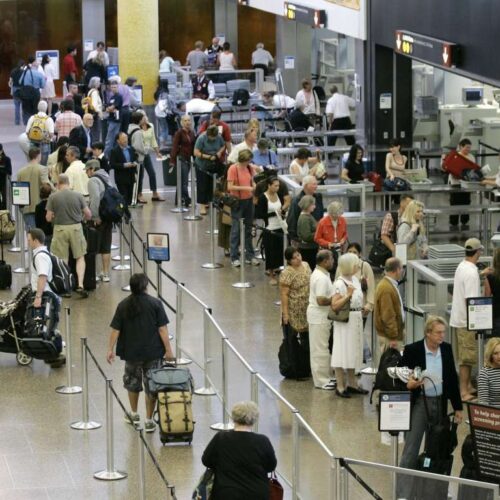Introduction
In recent weeks, iWatch News has published three stories about high-flying officials in the Department of Veterans Affairs commuting to D.C. at taxpayer expense. In reporting these pieces, two questions have come up again and again: How did this happen, and how widespread is the practice?
The inspector general reports on which the stories were based give some hints to the first question: This travel fraud happened because administrators at the highest levels of the VA allowed it to. In all three cases, the VA’s frequent flyers chose to live far from Washington, even though their “duty station,” the office they were supposed to report to, or much of the work they were responsible for, was in Washington, D.C. To be reimbursed for their airfare, hotels, and other expenses, they had to qualify for “official travel status.” That means that every time they flew to D.C., their supervisors had to approve the trip.
That’s apparently not very hard to secure. “Theoretically, someone has to sign off on [official travel requests],” said Paul Light, a professor of public service at New York University and a senior fellow at the Brookings Institute. “But what that person requires, and what that agency requires, is pretty loose.”
Most federal travel is largely governed by the “honor code,” according to Light. “Some travelers either don’t have a sense of what’s required or aren’t required to file anything.”
That may be the case at the VA, but it’s not due to a lack of regulations. An agency spokeswoman provided iWatch News with the travel policy section of the VA’s 1995 manual. It consists of over 150 pages of rules and appendixes. Since then, the agency has revised at least the following four sub-sections of its travel policy: travel charge card use (updated in 2003), passport use (2004) premium-class travel accommodations (2009), and local travel (2010).
The inspector general reports also pointed to a few other federal regulations and legal precedents that the agency’s high fliers ignored. All three employees – former IT Director Richard Gephart, his boss Katherine Adair Martinez, and one executive the VA has refused to identify –violated two provisions in the Code of Federal Regulations that limit expenses to those “essential to the transactions of official business” and compel employees “to exercise the same care in incurring expenses that a prudent person would exercise if traveling on personal business,” the reports noted.
In the case of Gephart and the anonymous official, the inspector general said they had violated a General Services Board decision, which found that “an employing agency may not pay the transportation costs the employee incurs while commuting.”
The problem isn’t a lack of regulations, but rather an inability to enforce them. “The modern capacity of government has deteriorated to the point that it’s difficult to keep up with the billion dollar contracts and subcontracts let alone the travel behavior of individual employees here or there,” Light said.
“The last defense is the [office of inspector general], and they stumble across this stuff,” he added. Indeed, the extensive travel bills racked up by Gephart and the unnamed bureaucrat were only uncovered “while conducting another administrative investigation,” the two reports on them noted. And all three bureaucrats had been charging their D.C. airfare and lodging to taxpayers for more than a year before they were caught by the inspector general.
The answer to the second question – how often this rule is violated – is less clear. “I think it happens with more frequency than we’d expect,” Light said. “Would it [cost taxpayers] a billion dollars a year? Would it be ten? A hundred? I just don’t know.”
Abuse of premium-class travel, one small subset of the federal government’s overall travel expenses, cost taxpayers hundreds of millions of dollars, the Government Accountability Office found in 2007. The report, which prompted the VA’s 2009 premium-class travel policy changes, found that “[a] weak control environment and breakdowns in specific internal control procedures resulted in at least $146 million in improper first and business class travel by executive branch agencies over the 12-month period ending June 30, 2006.”
The full extent of the travel and duty station abuse problem at the VA could provide some sense of the government-wide cost. The agency’s inspector general, George Opfer, agreed Monday to undertake a systemic review of its travel records in response to a request from Iowa Republican Sen. Charles Grassley.
Do you know a federal employee who commutes to work by plane? Are you a government worker whose boss or coworkers are abusing official travel status or their duty station assignment? Email tips to iWatch News Reporter Corbin Hiar: chiar@iwatchnews.org
Read more in Accountability
Accountability
FACT CHECK: Biden bungles talking point on debt
VP does not do the U.S. any favors by artificially inflating our share of the public debt
Accountability
FACT CHECK: Obama claims foreign countries pay teachers as well as doctors
In trying to highlight U.S. education inadequacy, President Obama’s statement is only half true


Join the conversation
Show Comments